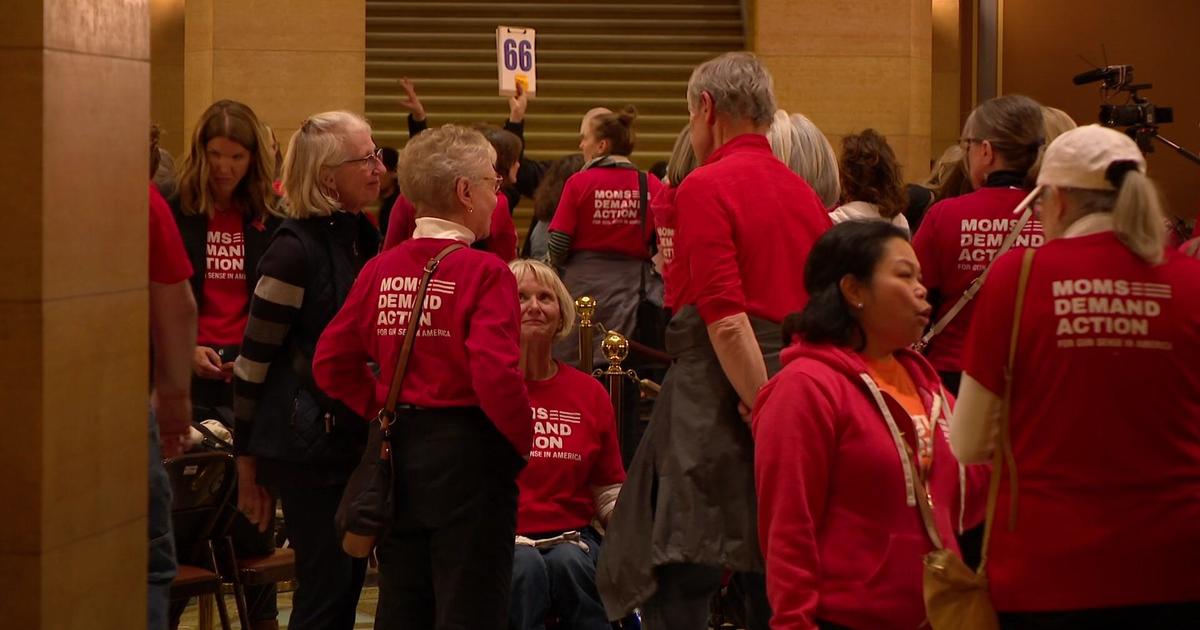Top Minn. Legislators Pledge Boost In Minimum Wage
ST. PAUL, Minn. (AP) — Democrats who lead the Minnesota Legislature left no doubt Wednesday that a minimum wage increase of some kind will prevail in the upcoming session.
The assurance that a minimum wage plan will get through — after stalling last year — came during a preview session with Capitol reporters sponsored by Forum News Service. The details, however, are still in flux and will be negotiated early in a session that begins next week.
"I don't see any reason why we shouldn't be able to move pretty expeditiously on this bill and get it passed after working out what are legitimate public policy issues," said House Speaker Paul Thissen, DFL-Minneapolis.
Minnesota's minimum wage is $6.15 per hour, though many workers automatically receive the higher federal minimum of $7.25 per hour. Some workers such as babysitters, taxi drivers, nonprofit volunteers and others are exempt from the minimum wage. The Minnesota wage hasn't gone up since 2005.
Last year, the Senate approved a bill gradually raising Minnesota's minimum hourly wage to $7.75. The House-adopted plan lifted it to $9.50 per hour, phased in over time. The House bill also makes changes to laws governing overtime and unpaid leave for new parents. The Senate's plan doesn't.
According to a Star Tribune poll published Wednesday nearly 8 in 10 people surveyed supported a boost of some level, though far fewer supported going to $9.50.
Minnesota technically has two minimum wages now because smaller businesses — those with gross sales below $625,000 per year — can pay a lower rate than all other businesses.
Senate Majority Leader Tom Bakk, DFL-Cook, said the final compromise must preserve those special accommodations for small businesses to help cushion any blow.
Thissen said he expects a bill to reach Gov. Mark Dayton in the first few weeks of session. Dayton has pledged support.
Republicans seemed resigned to an increase, but warned it would have repercussions. They cited a new federal study showing a national wage proposal could lead employers to cut jobs.
"I know that increasing the minimum wage sounds great, but unfortunately this is a solution that is going to unemploy the underemployed," said House Minority Leader Kurt Daudt, R-Crown.
Bakk and Thissen countered that putting more money in the pockets of the working poor will make them less dependent on government assistance.
"We ought to be moving people in a direction that makes people more self-sufficient," Thissen said. "That's what raising the minimum wage is all about."
Senate Minority Leader David Hann, R-Eden Prairie, said his colleagues "could live with" the federal minimum of $7.25.
Aside from the wage debate, the lawmakers expressed differences over what to do with an expected budget surplus. Thissen joined the two Republicans in advocating for using some of the money to repeal a slate of recently enacted sales taxes on business services; Bakk wouldn't commit.
The leaders said they expect to approve a construction projects bill, though they differed over the types of projects that should be included and the overall size. Partisan cooperation is essential on that plan because Democrats need Republican votes to achieve a supermajority threshold.
The debate over publicly subsidized sports stadiums has finally moved beyond the Legislature with the Vikings stadium construction. But Bakk said there could be one sports item on the Legislature's docket. He said lawmakers might have to pass a law waiving taxes on football player salaries if Minnesota hosts a Super Bowl. Minneapolis is a finalist for the 2018 Super Bowl that will be awarded in May.
(© Copyright 2014 The Associated Press. All Rights Reserved. This material may not be published, broadcast, rewritten or redistributed.)



